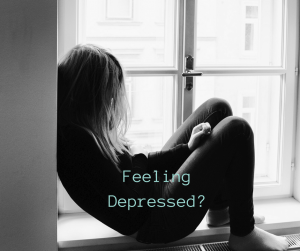
What is PMDD?
PMDD stands for Premenstrual Dysphoric Disorder. It is similar to the mental, emotional, and physical premenstrual symptoms that many women get before their periods, but much stronger. In 5% to 8% of women, the moderate-to-severe symptoms of PMDD cause significant distress and functional impairment. The symptoms occur anywhere from 5 to 11 days before the period starts.
What are the symptoms of PMDD?
PMDD symptoms include:
- Intense anger or irritability
- Depression
- Suicidal thoughts
- Dark mood
- Difficulty concentrating
- Fatigue
- Changes in appetite
- Mood swings
- Feelings of hopelessness
- Insomnia
- Tension
- Anxiety
- Loss of interest in usual activities
- Bloating
- Breast tenderness
- Abdominal pain and
- Cramps
What Causes PMDD?
Given the timing of the symptoms, the hormonal variations that occur before menstruation are likely the cause of premenstrual dysphoric disorder. Why some women experience such extreme symptoms prior to their periods is unclear. Other possible causes or contributing factors include defects in the serotonin system, altered sensitivity of the GABAA receptor to allo-pregnenolone, and altered emotional and cognitive functions.
Research to determine the cause of PMDD found cyclic changes in neurotransmitter precursors (tyrosine, tryptophan, glutamic acid), glutathione metabolism (which requires n-acetylcysteine), the urea cycle (which requires arginine, B6, and magnesium), 4-pyridoxic acid (a breakdown product of vitamin B6), and 25-OH vitamin D. These altered levels may make women vulnerable to the effects of changing hormones. Through naturopathic medicine, I can support each of these levels and bring them into better balance.
Can PMDD be Cured?
As a naturopath, I help women naturally balance their hormones and neurotransmitters through several different means. These include changes to diet, improving exercise habits, lifestyle adjustments, vitamins, minerals, herbs, and other natural supplements.
There may be a genetic predisposition to premenstrual dysphoric disorder. As a result, you may always have that tendency to hormone imbalance. That just means that you may also have to consistently take steps to keep your hormones balanced.
How Do Hormones Cause PMDD?
Hormones affect the way your brain works. They do this by influencing how the receptors that take up certain brain chemicals work. These chemicals are called neurotransmitters. Neurotransmitters like serotonin help you feel happy. Dopamine is a reward neurotransmitter that also signals you to feel good. GABA is a neurotransmitter that helps you to feel calm. Anxiety, depression, anger, irritability, mood swings, or dark mood can all be related to how well your neurotransmitters are working. How well they work is connected to the balance of your hormones.
Which Hormones Contribute to PMDD?
Estrogen and progesterone particularly influence the way your neurotransmitter receptors work.
Estrogen
Estrogen modifies the effects of serotonin, your happy neurotransmitter.
Free Testosterone
A 2012 study, showed that higher free serum testosterone levels in the late premenstrual phase were associated with reduced premenstrual symptoms of irritability and depressed mood.
Progesterone
Allopregnanolone is a product of progesterone breakdown that affects the receptors for the neurotransmitter GABA. Several studies have shown that women with PMDD are particularly sensitive to the effects of allopregnanolone. A 2016 study that blocked the breakdown of progesterone into allopregnanolone improved symptoms in women with PMDD.
Why are These Hormones Out of Balance?
There are a variety of mechanisms that can create hormone imbalance, many of them are modifiable through diet, lifestyle, and supplementation. High stress creates hormone imbalance. High carb diets also contribute to hormonal imbalance.
How Can a Naturopath Help PMDD?
Dietary changes address the root cause of the hormone imbalances that create premenstrual dysphoric disorder. Every patient in my care gets a detailed food list of which foods would be most beneficial and which would be most detrimental for them.
Vitamins, minerals, and amino acids influence neurotransmitter balance. These are used to adjust levels of GABA and serotonin, particularly in this condition.
Herbs help with hormone balance and mood.
What are the Best Supplements for PMDD?
While I can’t say which are the best supplements for you without seeing you. Here are just a couple of the supplements that have some research to validate their use in premenstrual dysphoric disorder.
Vitamin D: Vitamin D improves blood levels of calcium, and shows promise in the treatment of PMDD, particularly in those women whose levels are low.
Chastetree berry or Vitex Agnus-Castus: Chastetree helps with progesterone levels, and helps to reduce prolactin levels if they are high.
By Dr. Pamela Frank, BSc(Hons), ND, updated March 27, 2025
PMDD Research Sources:
https://www.ncbi.nlm.nih.gov/pubmed/28477648
https://www.ncbi.nlm.nih.gov/pubmed/30335340
https://www.ncbi.nlm.nih.gov/pubmed/30946949
https://www.ncbi.nlm.nih.gov/pubmed/21974977
https://www.ncbi.nlm.nih.gov/pubmed/26272051
https://www.ncbi.nlm.nih.gov/pubmed/27454391
https://www.ncbi.nlm.nih.gov/pubmed/23136064
Dr. Pamela has practiced as a naturopathic doctor in Toronto since 1999. She has received numerous “Best Naturopath in Toronto” awards. She is registered with the College of Naturopaths of Ontario.
Dr. Pamela Frank uses a natural treatment approach that may include acupuncture, herbal medicine, nutrition, diet, vitamins, supplements, and other natural remedies to restore balance and provide long-term resolution to almost any health problem.
